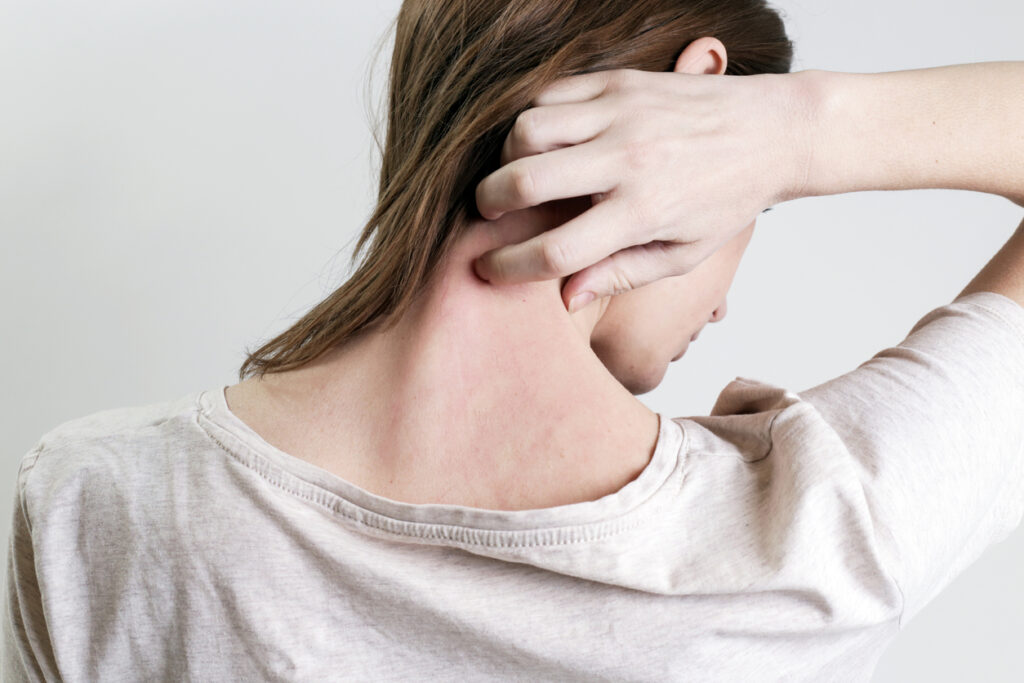Upadacitinib (Rinvoq, AbbVie) performed well in moderate-to-severe atopic dermatitis (AD) patients with head and neck involvement, according to a new post-hoc analysis from the Measure Up 1 and Measure Up 2 Phase 3 studies.
The analysis evaluated the efficacy of upadacitinib (15mg or 30mg) in patients with moderate-to-severe atopic dermatitis (AD) stratified by the severity of disease in the head and neck region at baseline compared to placebo across 16 weeks. The findings were presented at at the European Academy of Dermatology and Venereology (EADV) Congress in Amsterdam.
The upshot? A higher proportion of patients with moderate-to-severe AD with varying degrees of head and neck involvement treated with the Janus kinase inhibitor upadacitinib (15mg or 30mg) achieved the following optimal treatment targets compared to placebo at week 16: near complete skin clearance in the head and neck region (Eczema Area and Severity Index [EASI] Head & Neck score <1), minimal or no impact on quality of life (Dermatology Life Quality Index [DLQI] 0/1)), and minimal disease activity, which is the simultaneous achievement of near complete skin clearance (EASI 90) and no to little itch (the Worst Pruritus Numerical Rating Scale [WP–NRS] 0/1).
| % (N) | Placebo | Upadacitinib 15 mg | Upadacitinib 30 mg |
| EASI Head & Neck Score < 1 | |||
| 1 to <4 (moderate) | 27.4 (307) | 67.8 (320) | 75.9 (323) |
| 4 to 7.2 (severe) | 10.5 (152) | 47.2 (142) | 63.2 (136) |
| Minimal Disease Activity (MDA; EASI 90 + WP-NRS 0/1) |
|||
| 0 to <1 (no-to-mild) | 3.1 (97) | 37.2 (94) | 48.1 (108) |
| 1 to <4 (moderate) | 2.0 (304) | 22.3 (319) | 37.5 (320) |
| 4 to 7.2 (severe) | 0.7 (150) | 24.8 (141) | 37.8 (135) |
| DLQI 0 or 1 | |||
| 0 to <1 (no-to-mild) | 5.7 (87) | 38.4 (86) | 45.5 (99) |
| 1 to <4 (moderate) | 4.6 (283) | 25.3 (296) | 38.0 (295) |
| 4 to 7.2 (severe) | 4.3 (139) | 25.0 (128) | 41.5 (123) |
| P0734 E-poster | |||
Primary efficacy and safety results from these ongoing pivotal studies have been previously reported:
“These data stratify the severity of atopic dermatitis in the head and neck region, which is a part of the body that has significant impact on patients and is challenging to treat,” says Kilian Eyerich, MD, PhD, chair and professor at the Department of Dermatology and Venerology of the University of Freiburg, Germany, in a news release. “At 16 weeks, RINVOQ showed efficacy in patients with moderate-to-severe atopic dermatitis with various degrees of head and neck involvement, achieving optimal treatment targets with combined measures of EASI 90 and WP-NRS 0/1, along with improvement on the patients’ quality of life measured by DLQI 0/1 in a substantial number of patients.”
“Despite taking steps to manage their condition, many patients with atopic dermatitis continue to live with debilitating symptoms, especially in highly visible areas such as head and neck that can intensify one’s physical and emotional burden,” adds Andrew Anisfeld, PhD, Vice President of Global Medical Affairs and Immunology at AbbVie. “These data contribute to our ongoing commitment to elevate the standard of care in atopic dermatitis so patients can strive for the best possible outcomes.”


